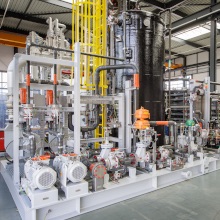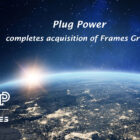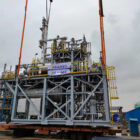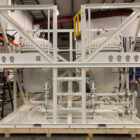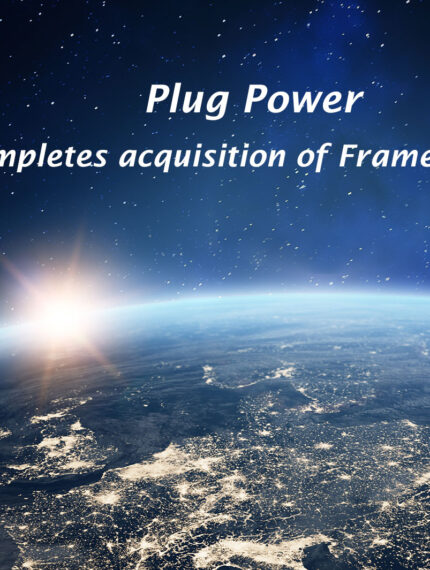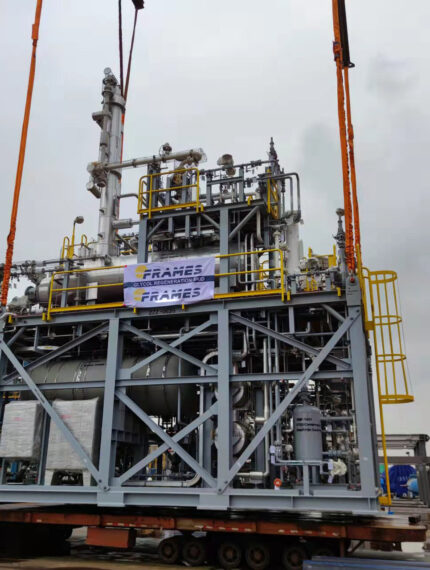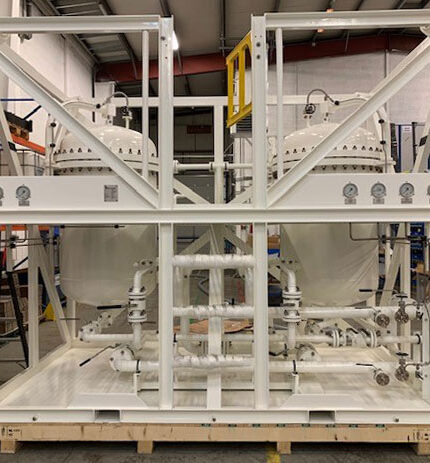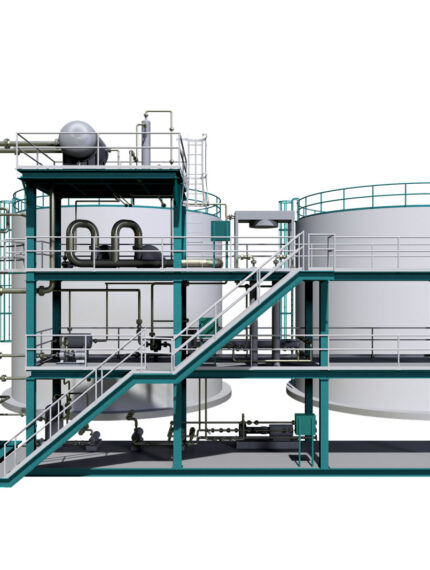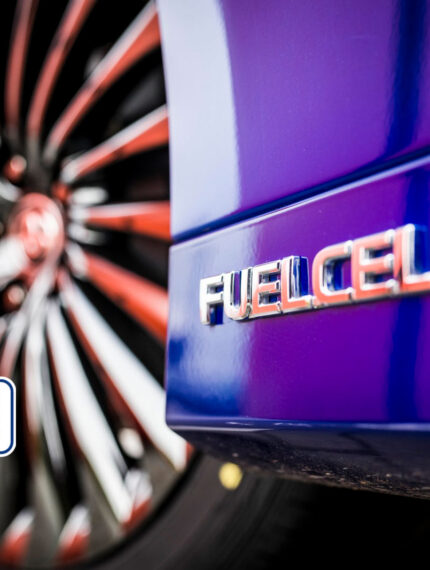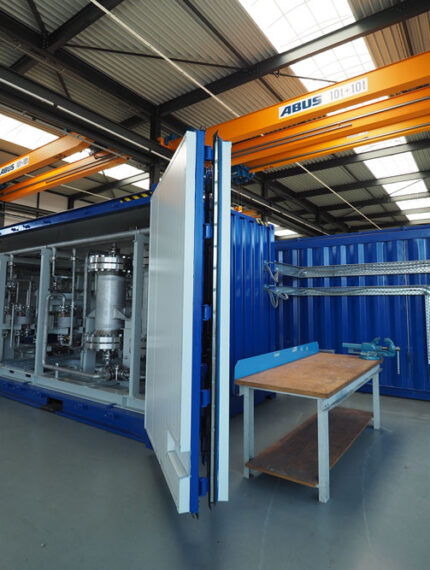Frames is supplying an electrochlorination package to MODEC Offshore Production Systems (Singapore) Pte. Ltd., a group company of MODEC, Inc. (MODEC) that is a Japanese owner/operator and EPCI general contractor of floating production systems including Floating Production Storage and Offloading (FPSO) vessels, to prevent biofouling of seawater systems on the FPSO Carioca MV30. Operated by MODEC group for Petróleo Brasileiro S.A. (Petrobras), the FPSO to be deployed in the Santos Basin’s Sepia field, 250 kilometres off the coast of Rio de Janeiro, Brazil.
The Frames Electrochlorination Package is being installed to generate and inject the required sodium hypochlorite into the FPSO’s seawater systems. Production of hypochlorite involves using electrolysis to convert sodium chloride in seawater into sodium hypochlorite. Frames’ Hypochlorite Generation System comprises electrolyser modules containing a number of electrolyser cells that determine the total hypochlorite production capacity of the unit. Hydrogen gas produced as a by-product of electrolysis is removed by degassing.
The Frames Electrochlorination System uses self-cleaning cell technology provided by its partner Evoqua Water Technologies. Self-cleaning increases process safety by eliminating the need for acid cleaning during operation and reduces the electrochlorination package’s operating cost.
“Self-cleaning is a key benefit of our electrochlorination anti-fouling systems,” says Sjoert Bolhuis, Product Specialist - Chemical Injection and Electrochlorination, Frames. “It gives offshore operators a ‘fit and forget’ systems approach to preventing biofouling of seawater systems and optimising flow assurance.”
FPSO Carioca MV30
The FPSO Carioca MV30 will be capable of processing 180,000 barrels of crude oil per day, 212 million standard cubic feet of gas per day, 240,000 barrels of water injection per day and has storage capacity of 1,400,000 barrels of crude oil.

